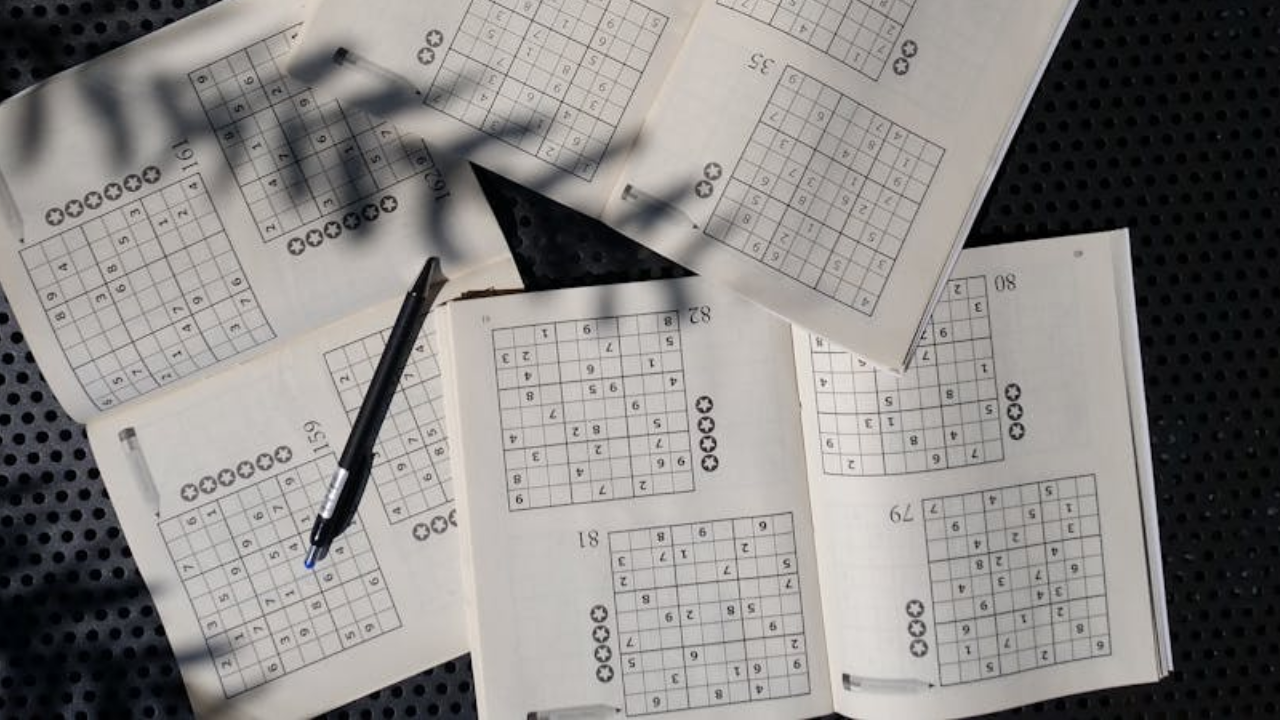In the fast-paced world we live in, maintaining a sharp mind and robust memory is essential for daily tasks, productivity, and overall well-being. Just as we exercise our bodies to stay fit, our brains also need regular stimulation to stay active and healthy.
Engaging in brain games is an effective way to achieve this. Here are five engaging brain games that can help sharpen your mind and boost memory.
Table of Contents
1. Sudoku

Sudoku is a classic number-placement puzzle that has captivated enthusiasts for decades. The objective is to fill a 9×9 grid so that each row, column, and 3×3 subgrid contains all digits from 1 to 9 without repetition.
Benefits: Sudoku stimulates logical thinking, enhances concentration, and improves pattern recognition skills. Regular play has been shown to boost working memory and cognitive flexibility.
How to Play: While it may seem daunting at first, Sudoku becomes more intuitive with practice. Start with easier puzzles to build confidence and progress to more challenging ones as your skills improve. The mental exercise of analyzing numbers and determining their positions helps engage different parts of the brain, strengthening cognitive functions over time.
2. Crossword Puzzles

Crossword puzzles are a popular and timeless brain game that challenges vocabulary, memory, and problem-solving skills. They require players to find the right words that fit specific clues, testing their general knowledge and linguistic capabilities.
Benefits: Completing crosswords regularly can enhance verbal fluency and improve memory retention. The process of recalling words, exploring synonyms, and connecting ideas activates various parts of the brain, contributing to overall mental agility.
Tips for Success: Start with themed or simpler crosswords and gradually move on to more complex ones. If you’re stuck on a clue, come back to it later—taking breaks can provide a fresh perspective and help with word recall. This game is perfect for stimulating the mind while relaxing and enjoying a cup of coffee.
3. Memory Card Games
Memory card games, often known as concentration games, involve matching pairs of cards from a deck laid face down. Players need to remember the position of each card as they try to find matching pairs.
Benefits: These games are highly effective in improving short-term memory, concentration, and attention to detail. The process of memorizing the positions of different cards and recalling them later exercises the brain’s ability to store and retrieve information.
How to Play: To play, shuffle a deck of cards and lay them face down in rows. Turn over two cards at a time, trying to find matching pairs. If the cards don’t match, turn them back over and remember their positions for future turns. This game can be played solo or with friends, adding an element of competition that can further engage the brain.
4. Chess

Chess is one of the most revered strategic board games in the world, celebrated for its depth and complexity. It involves two players moving pieces on a board with the aim of checkmating the opponent’s king.
Benefits: Playing chess enhances critical thinking, strategic planning, and problem-solving skills. The game requires players to analyze potential moves, anticipate their opponent’s strategy, and adapt their approach accordingly. This continuous mental exercise promotes cognitive function and strengthens both short-term and long-term memory.
How to Improve: Beginners should start by learning basic moves and strategies, such as controlling the center of the board and developing pieces effectively. Practicing against various levels of opponents, whether friends, online players, or computer programs, helps refine your skills. Analyzing past games and learning from mistakes also contributes to cognitive development.
5. Brain-Training Apps
Modern technology has made brain games more accessible than ever. Brain-training apps such as Lumosity, Peak, and Elevate offer a variety of activities designed to target different cognitive skills, including memory, attention, and problem-solving.
Benefits: These apps use interactive, bite-sized games that challenge various aspects of brain function. For example, some games may focus on rapidly identifying patterns, while others might involve memorizing sequences or solving puzzles under time pressure. Consistent use of these apps has been linked to improvements in processing speed and mental flexibility.
Choosing the Right App: Each brain-training app offers different strengths. Lumosity, for example, has a mix of scientifically developed games that target memory and attention, while Elevate emphasizes language and comprehension skills. Experimenting with different apps and finding one that suits your interests can make cognitive training an enjoyable part of your daily routine.
Tips for Maximizing Brain Game Benefits
While brain games are effective, it’s important to follow certain guidelines to maximize their impact:
- Consistency is Key: Playing brain games regularly, even for just 15-30 minutes a day, can lead to significant cognitive improvements over time.
- Challenge Yourself: Always aim to challenge your brain by gradually increasing the difficulty of the games you play. This encourages continuous learning and growth.
- Balance with Physical Activity: Physical exercise is known to improve blood flow to the brain and boost cognitive function. Pairing brain games with physical activity can amplify the benefits.
- Stay Social: Many brain games, such as chess or card games, can be played with friends or family. Social interaction itself is a powerful tool for keeping the mind active and engaged.
